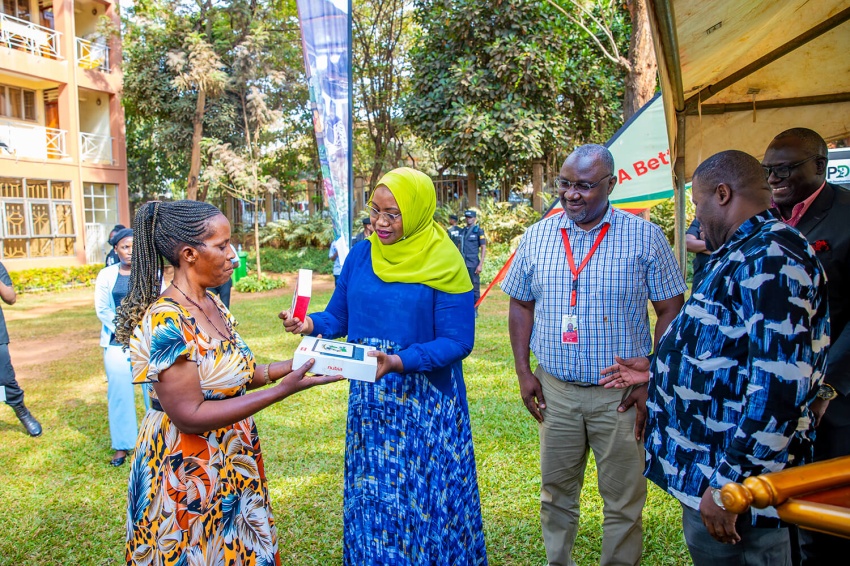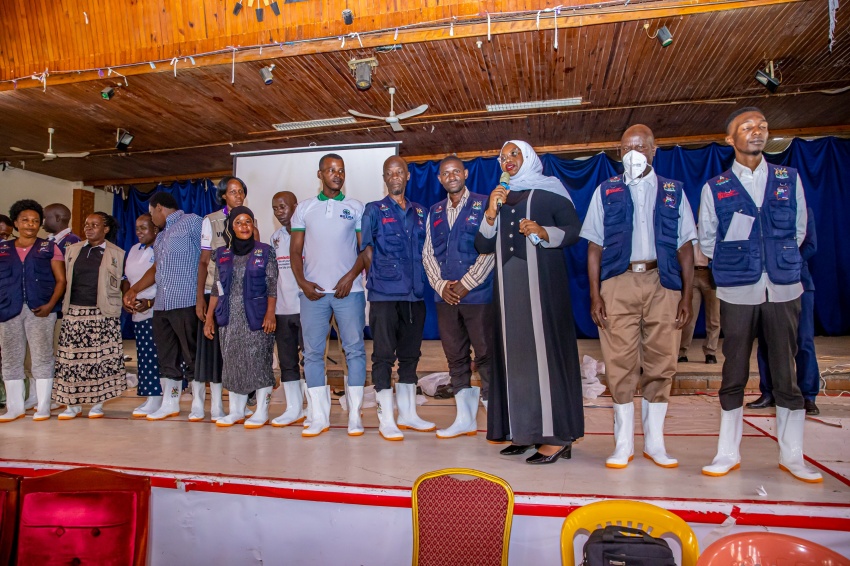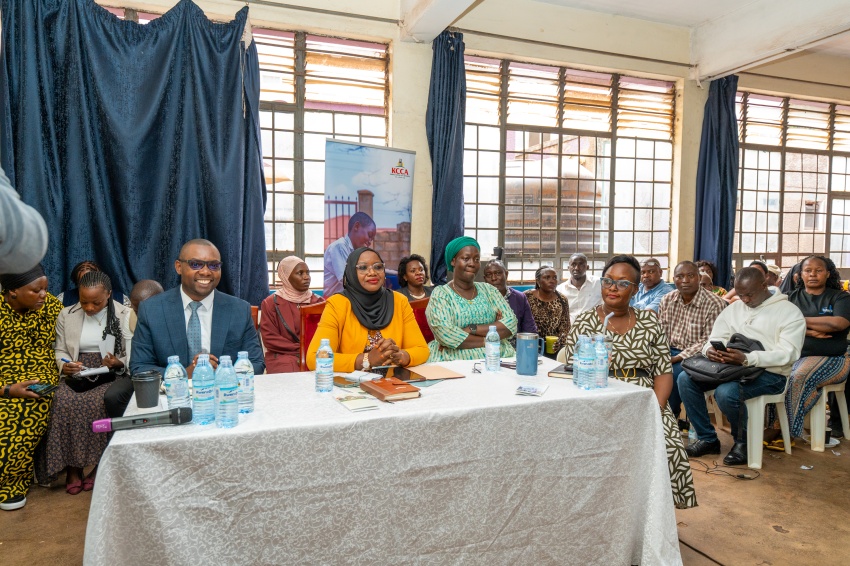KCCA DISTRIBUTES TABLETS TO ENHANCE PDM IMPLEMENTATION IN LUBAGA
PUBLISHED — 7th, February 2025
In a bid to enhance data collection and streamline the implementation of the Parish Development Model (PDM), Kampala Capital City Authority (KCCA) has distributed 28 tablets and 28 power banks to Lubaga Division.
The devices, part of a larger consignment of 215 tablets from the PDM Secretariat, are intended to facilitate efficient data collection and program monitoring.
KCCA Executive Director Sharifah Buzeki, while handing over the tablets on Friday, stressed the importance of accurate data in tracking PDM’s success. “We need accurate and reliable data from the parishes in Kampala to effectively measure the impact of the Parish Development Model,” she stated.
The tablets have been allocated to key stakeholders involved in PDM implementation. Community Development Officers, Assistant Ward Administrators received got13 devices e, while SACCO Executive Members were allocated one tablet per SACCO.
Additionally, division planners and ICT officers each received a tablet to support coordination at the divisional level.
The devices will enhance the functionality of the Parish Development Model Information System (PDMIS), allowing for real-time tracking of progress, improved accountability, and efficient data management. To ensure optimal performance, all tablets underwent a thorough verification process to confirm their functionality and compliance with required technical standards.
Lubaga Division has so far received UGX 2.6 billion under the PDM initiative, with each of the 13 SACCOs receiving UGX 200 million per parish. These funds are aimed at supporting income-generating activities and facilitating the transition of households from subsistence to a money-based economy.
Authorities have urged all beneficiaries to safeguard the government-issued tablets and use them exclusively for PDM-related activities. By the end of February, officials expect to have comprehensive data collected from all parishes in Kampala, further strengthening the model’s implementation and efficiency.
The Parish Development Model remains a crucial government strategy aimed at alleviating poverty through financial inclusion, skills development, and structured trade practices at the parish level.
By Geofrey Mutegeki Araali
Communication and Media Relations Officer
News & Announcements
23rd, December 2025
22nd, December 2025
20th, December 2025
19th, December 2025
18th, December 2025
17th, December 2025
16th, December 2025
15th, December 2025
11th, December 2025
10th, December 2025





















Development partners